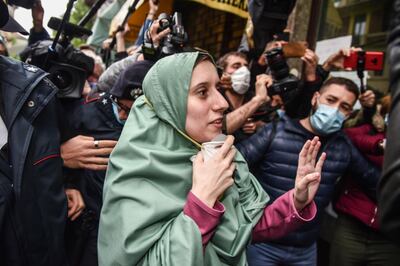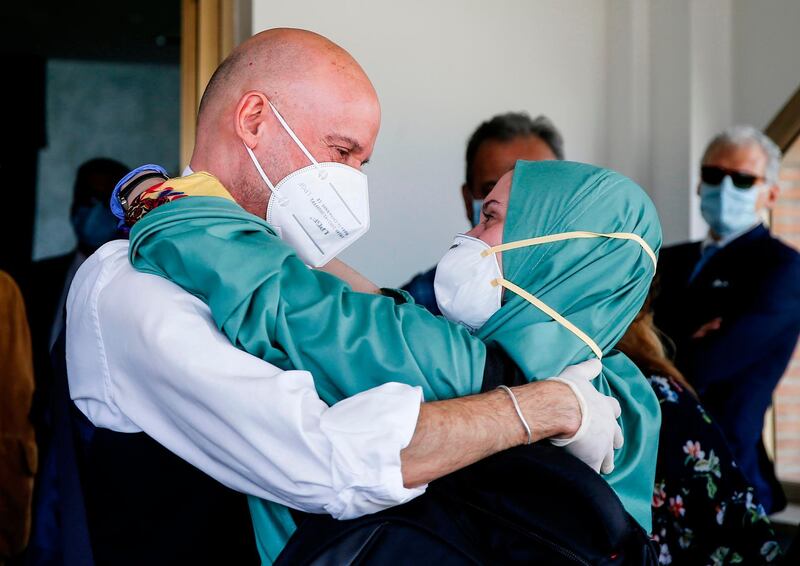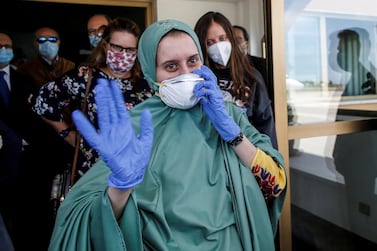Europeans oppose paying ransoms to terrorist groups unless their own relatives are being held hostage, according to survey results published after the release of an Italian aid worker reputedly held by Al Shabab.
Silvia Romano, 25, was kidnapped by gunmen 18 months ago in Kenya but returned to Italy at the weekend after a reported payment to the Somalian Islamist group. The payment sparked a backlash among the Italian right-wing over the role of Turkey and her conversion to Islam while she was being held.
The study conducted in March by pollster YouGov found that more Europeans in the six countries polled believed that paying an Islamist organisation to free a hostage should be illegal compared to those who though it should be illegal.
The most stark difference was in the UK where 55 per cent of Britons thought it should be illegal compared to 17 per cent who thought it should be legal. The finding was, however, reversed in all countries if they were told that relatives were held hostage.
The issue came to the fore with the emergence of the ISIS and the killing of foreign prisoners by death squads in Syria and Iraq. In response to the kidnappings and beheadings, leaders of the G8 group of nations said in 2013 that they “unequivocally” rejected the payments of ransoms to terrorists.
“We call on countries around the world to follow our lead and stamp out this as well as other lucrative sources of income for terrorists,” the leaders of the industrialised nations, including Italy, said in the statement after a meeting in Northern Ireland.

Ms Romano was freed from close to Mogadishu, Somalia, after Italian intelligence services worked with their Turkish counterparts and Somalian government officials. Work on her release started in December last year, according to reports.
Her case and the survey highlighted the difficulties of payments when the life and death of citizens was in the balance, according to Tom Keatinge, the head of the financial crime centre at the Royal United Services Institute think-tank.
The US has a no-concessions policy that does not allow for ransoms to be paid by the state to foreign terrorist organisations. There is no formal ban on paying governments.
Following the ISIS kidnappings, the Department of Justice said in 2015 that it has never prosecuted a hostage’s family or friends for paying a ransom for the safe return of their relatives.
“These survey results suggest that other governments might be well-served in considering a similar approach,” he said.








